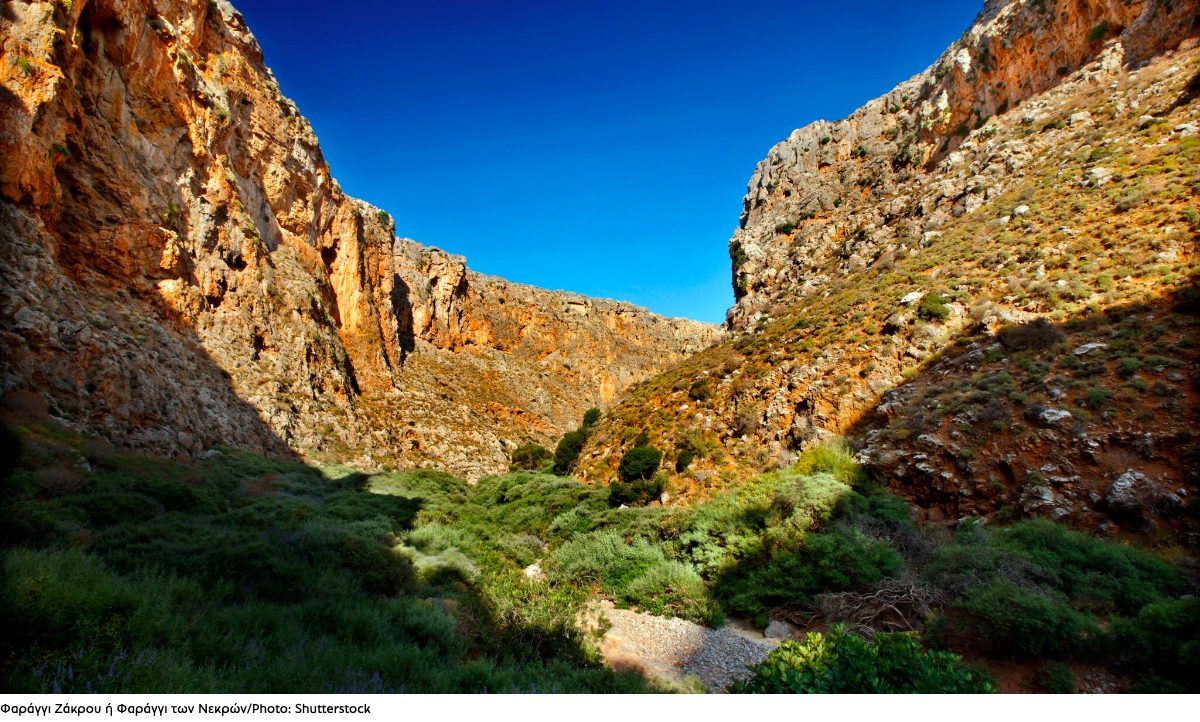While the Lassithi region is primarily known for the glamorous Elounda and bustling Ierapetra, it also boasts other beauties worth exploring: from fortresses and churches to the ruins of ancient cities and settlements, as well as intriguing hiking trails like the one through Zakros Gorge.
Located in eastern Lassithi, near the village of Zakros, the famous gorge—or Gorge of the Dead—offers breathtaking scenery. Its exit leads to a significant Minoan archaeological site and a beautiful beach.
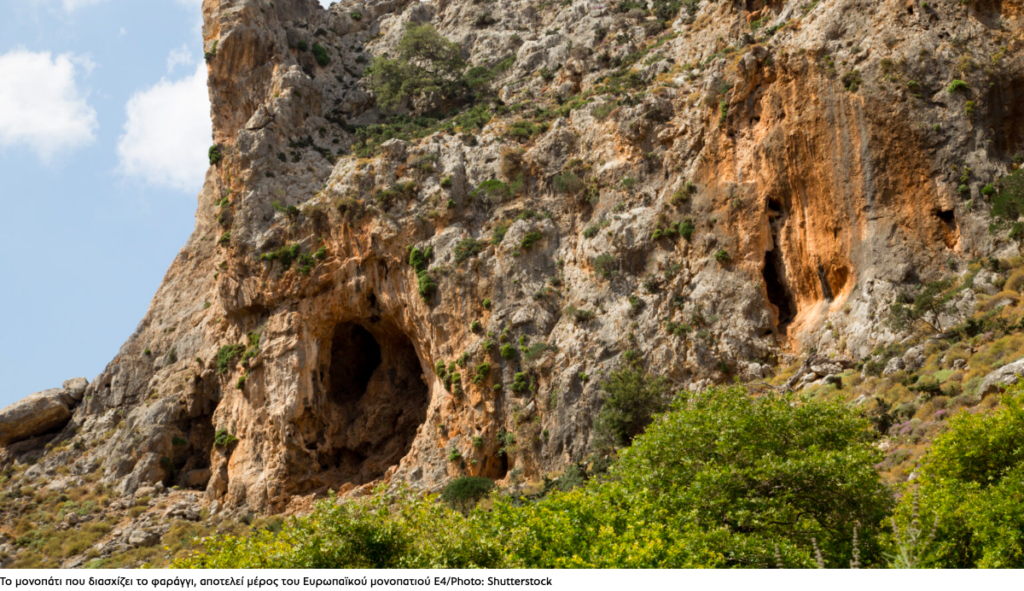
Don’t be intimidated by the name “Gorge of the Dead.” It doesn’t mean you have little chance of surviving the hike; quite the opposite. It’s considered one of the easier gorges. The name comes from the Minoans’ practice of burying their dead in the caves of the gorge’s cliffs.
To reach the gorge, you’ll need to drive about an hour from Sitia. You might consider making the trip the day before and staying overnight in Zakros village. You can relax in its cafes, dine at its tavernas, and start your hike early the next morning. There are large parking areas at the entrances of the gorge.
The trail through the gorge, starting just outside Zakros and ending in the village of Lower Zakros, is part of the European E4 trail, which stretches from Portugal, enters Greece from the north, and traverses Crete. There are two entrances to the gorge: one a bit outside Zakros village and the other slightly further south. From either entrance, the hike to the exit takes about two hours, with clear signage at both points.
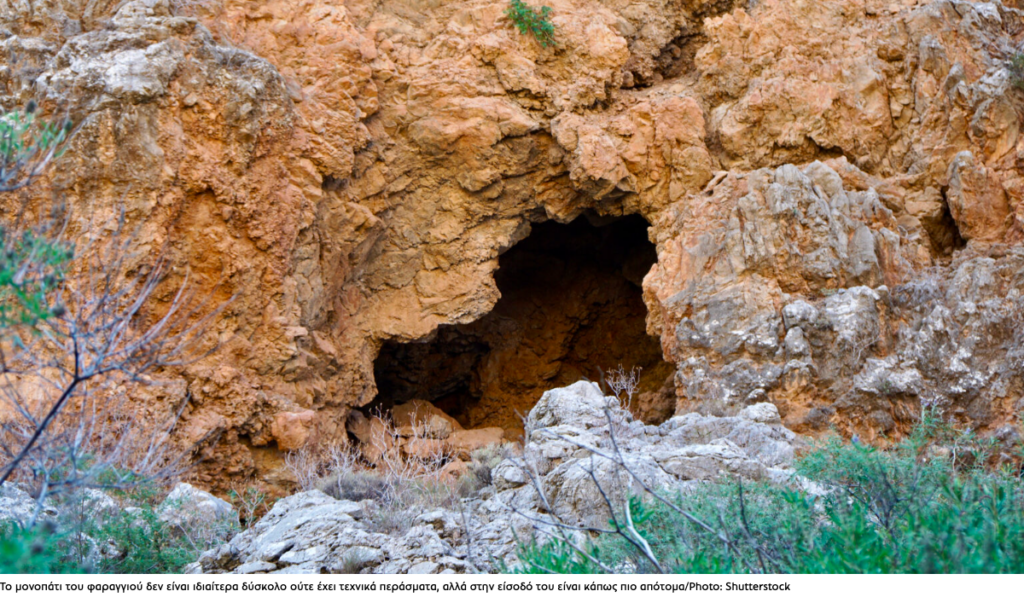
The trail is not particularly difficult or technical, though the entrance is somewhat steeper—just take extra care. Once inside the gorge, the path becomes much easier, making it suitable even for less experienced hikers, though caution is still advised.
The natural beauty of the gorge features small marvels: enormous rocks with caves that served as final resting places for Minoan Cretans, and the Minoan Palace of Zakros at the trail’s end. Don’t expect dense, towering vegetation—though there are plane trees—the landscape is primarily low-growing, with mastic trees, oleanders, lavender, various fragrant shrubs, occasional fig trees, and bushes. You might even spot goats grazing.
You can hike the gorge year-round, but extra caution is needed in winter. Seasonal rains create small lakes and waterfalls, providing compensation for any difficulty. In summer, while there may be no water, the beach at Lower Zakros offers a chance to cool off with numerous swims and enjoy local Cretan dishes at nearby tavernas.
Minoan Palace of Zakros
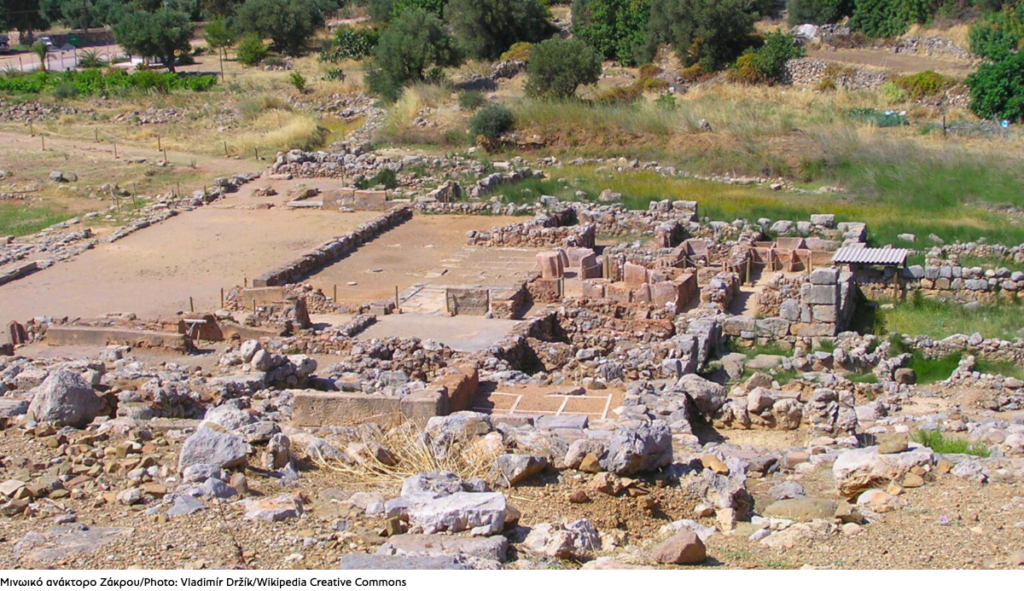
One of the most interesting points is the gorge’s exit, where you’ll find the Palace of Zakros, the fourth-largest Minoan palace on Crete. Artifacts from the area, such as elephant ivory, faience, and copper, suggest it was a center for trade with Eastern countries. The palace was built in two phases: around 1900 BC and again around 1600 BC, but like most Minoan sites, it was destroyed around 1450 BC. It covers over 8,000 square meters and is believed to have contained around 300 apartments. In summer, the archaeological site is open until 8 p.m., and in winter until 3:30 p.m.
For those seeking more, the gorge’s exit at Lower Zakros offers two secured climbing areas with various routes. The first is about 150 to 200 meters before the exit and is more challenging, while the second is 50 meters from the exit.
Zakros Gorge or Gorge of the Dead / Photo: Shutterstock
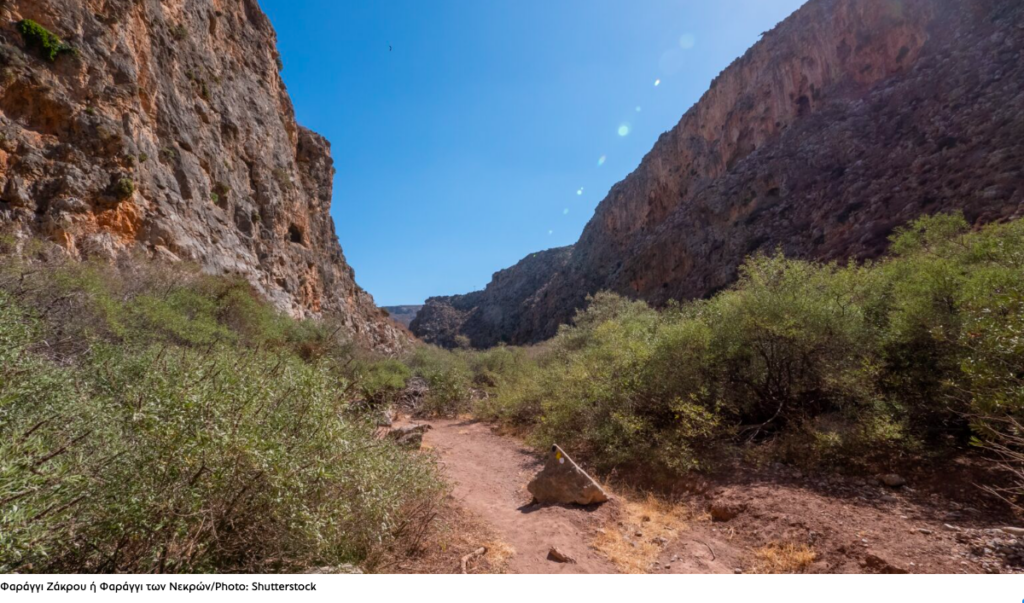
If you’re considering how to return from Lower Zakros to where you left your car, you have two options: have someone from your group stay behind to pick you up or take a taxi. In summer, there might be a KTEL bus route connecting the village with the coastal settlement of Lower Zakros, with a stop near the second entrance, though this service isn’t guaranteed every year. Alternatively, you can take a slightly different route—a circular hike of about 4 hours. The route starts from Lower Zakros, about 30 meters before the gorge entrance, climbs a hill with an elevation difference of about 100 meters, enters the gorge, and follows the trail back to Lower Zakros, returning to the starting point.
Ask me anything
Explore related questions
